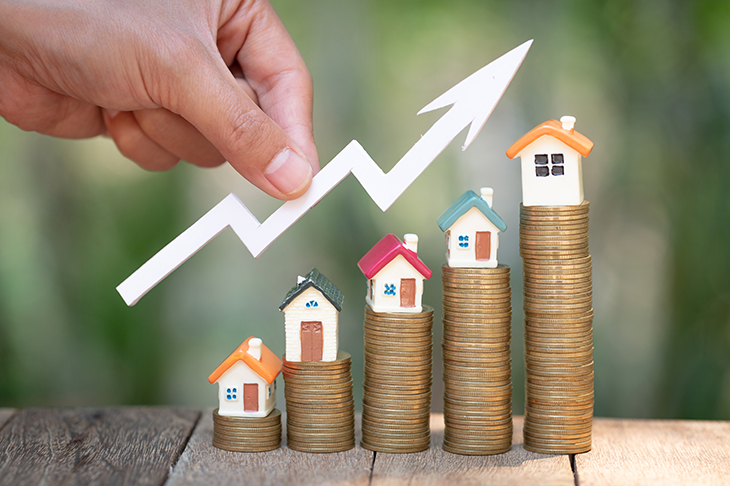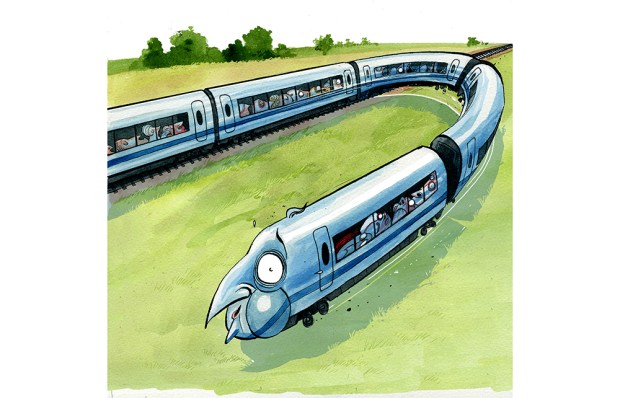In 1991, 67 per cent of 25- to 34-year-olds owned their own home. In 2016, that figure had fallen to 38 per cent.
The average house price in the UK is eight times the average wage, this ratio having doubled since 1998.
Half of first-time buyers in Britain are now dependent on the Bank of Mum and Dad, rising to two-thirds in London and the south-east.
Over the past 20 years, the proportion of people living in the private rented sector has doubled. There are one million more 18- to 34-year-olds living with their parents than there were in 2002.
Between the mid-1950s and the mid-1990s (expressed in 2016 prices) the average price of residential land rose from £150,000 per hectare to £1.3 million. By 2007 it was £5 million. (In the 1930s, before planning permission, land cost represented only 2 per cent of the cost of an average home.)
In England, land without planning permission is worth £20,000 per hectare. That same land with permission is worth £2 million per hectare.
Since 1970, France has built 16.7 million new homes, Britain just 8.9 million.
If we allowed building on all non-beautiful land within 800 metres of a Tube station or a train station, we would have room for one million more homes.
No significant new settlements have been established in the UK since Milton Keynes in 1970.
All these figures come from Liam Halligan’s fascinating book Home Truths: The UK’s Chronic Housing Shortage — How it Happened, Why it Matters and How to Solve it.
In truth I don’t think they capture the scale of the problem. For instance, by catering to buy-to-let or overseas investors rather than the ultimate occupant, housing developers have overproduced two-bedroom apartments. These are wonderful if you want to rent to a two-person flatshare, but often useless for owner occupation, since they are too large for one person and too small (and gardenless) for raising a family.
I am also less confident than the author in believing growing supply will solve the problem on its own. There is a mentality at work known as ‘fence theory’, whereby people are inclined to spend as much on property as they are allowed to borrow. Hence, as things stand, the property market more closely resembles the market for crack than the market for, say, toothpaste, in that expenditure on property is inclined to mop up all disposable income. All efficiency gains elsewhere in the economy are rendered pointless if the resulting savings are simply used to bid up property prices.
But I agree entirely with the author on two crucial issues. The first is that the housing market as it stands weakens the case for free-market capitalism, since your wealth becomes more dependent on when and where you bought your house than on any value you generate by working. I am comfortably within Jeremy Corbyn’s hated 5 per cent of top salary earners, thanks to what The Spectator pays me, plus a small stipend from an advertising agency, but I would need to take almost a decade spending nothing from my after-tax salary to save the £1 million capital gain JC will get tax-free when he sells his house in Islington (and a further ten years to buy his pension entitlement).
The second point the author makes — and cannot make forcefully enough — is that the housing problem should be more prominent in political debate than it has been to date. All the figures above are stark evidence that something is badly wrong. If the same thing had happened to food or fuel prices, there would be riots. And yet whereas HM Treasury employs ranks of bean counters to agonise over whether GDP growth is 2 per cent or 2.1 per cent, the fact that rising property prices were not a good news story seems to have passed them by.
Got something to add? Join the discussion and comment below.
Get 10 issues for just $10
Subscribe to The Spectator Australia today for the next 10 magazine issues, plus full online access, for just $10.
You might disagree with half of it, but you’ll enjoy reading all of it. Try your first month for free, then just $2 a week for the remainder of your first year.















Comments
Don't miss out
Join the conversation with other Spectator Australia readers. Subscribe to leave a comment.
SUBSCRIBEAlready a subscriber? Log in